A Call for Unity in the Body of Christ/Messiah
A Call for Unity in the Body of Christ/Messiah
By virtue of our role as disciples of Yahoshua Messiah (Jesus Christ), we are called to be a united and unified body of believers in every respect. Just as Master was united with His Father, we too must be united with the Father, our Master and with one another in the Body of Christ (Messiah). This is a call for unity in the Body of Messiah.
A Quiet Call for Messianics to Unite with Christians as One Happy Family
We have recently stumbled upon some quiet calls for uniting or unifying with our cousins in Christianity (aka, churchianity).
I believe Father is going to do a great work on the earth that will ultimately bring Messianics, Christians, the Lost Sheep of Israel and Jews together as One Body in Messiah (Joel 2) In the interim, we as Torah Observant Believers in Yahoshua Messiah must stay true to our Faith’s Constitution—Torah—and to the teachings of Yeshua our Master. We must not compromise our beliefs and convictions surrounding our Faith (Deut. 5:32; 17:20). That being said, I believe also that we must be careful to not be so willing to hook up with those who do not support the tenets of our Faith.
Paul wrote to the Assembly of Messianic Believers in Corinth:
“Be ye not unequally yoked together with unbelievers: for what fellowship hath righteousness with unrighteousness? And what communion hath light with darkness” (2 Corinthians 6:14)?
We Hebrew Rooters Are Divided as a Faith Community
There is no secret—no mystery—that our Faith Community is divided along several lines. Those new to Torah Living, however, are faced with horrendous challenges in sorting out how to walk out their Faith. Thus, the underlying tragedy we have lingering about within our Faith Community is a gross lack of unity.
Unity is a Recurring Theme Throughout Scripture

While some call for unity between Christians and Messianics, there needs to be unity within the Hebrew Roots Community first and foremost.
Unity is a recurring theme throughout the bible as it relates to the unique character of the Creator’s chosen people. The writer of Psalm 133:1 suggested that the ideal society under YHVH and His Torah is fostered in great part by YHVH’s children dwelling together in unity.
Love for one another becomes the binding agent that brings about that unity (Heb. 13:1).
The ideal unified and united society we’re actually referring to today is none other than the Body of Messiah that consists of Torah Observant Disciples of Yahoshua.
Master Was and Continues to be United with His Father
It was while Master was contending with the “rabbinic Jewish religious leaders” on the Temple Mount in Jerusalem, sometime around Hanukkah, possibly 27 C.E., in responding to those leaders’ demands that He reveal to them whether or not He was the long anticipated Messiah that Master exclaimed:
“…the works that I do in my Father’s name bear witness of me. But you do not believe because you are not among my sheep. My sheep hear my voice and I know them, and they follow me. I will give them eternal life and they shall never perish. Neither shall any man pluck them out of my hand. My Father, which gave them me, is is greater than all and no man is able to pluck them out of my Father’s hand. I AND MY FATHER ARE ONE” (John 10:25-30; Rood).
The English term “one” in this and similar passages of the Gospel record is the Greek term “eis.” The Thayer’s Greek Lexicon defines “eis” as being “united” most closely; that being united in will and spirit. Thus, Master’s proclamation to the Jewish leaders on the Temple Mount that day was that He and the Creator of the Universe, whom He identified as His Father, were united.
The Unity of the Father and Master
Our Master taught what was expressly given to Him by His/our Father. Master did only what His/our Father instructed Him to do. Yahoshua thought and saw things (that being their respective worldviews) the exact way Father sees them. The love they shared was beyond human description and understanding.
Both sides of their relationship was in perfect harmony and was completely united and unified.
In like manner, Master desires that we as individual members of His Body of disciples would be unified and united with He and Father.
A Prayer of and For Unity
As Master’s Passion loomed just beyond the dawn of the next day, He prayed with and for His disciples in the Kidron Valley on their way to Gethsemane. Master prayed:
“I do not pray only for these alone, but for those also who shall believe in me through their word, THAT THEY ALL MAY BE ONE. As you, Father, are in me, and I in you, I pray that they also may be one in us and that the world may believe that you have sent me. I have given them the glory that you gave to me so that they may be made perfect in one—and that the world may know that you have sent me and have loved them as you have loved me. Father, I will that they also, whom you have given me, be with me where I am so that they may behold my glory, which you have given me before the foundation of the world. O righteous Father, the world has not know you, but I have known you and these now know that you have sent me. I have declared your name to them and will declare it so that the love wherewith you have loved me may be in them and I in them” (John 17:20-26; Rood).
The writer of Psalm 86 prayed that Father teach him His ways so that he would obediently walk in Torah. In so fulfilling that prayer, he would be fully united with and by default, committed to YHVH (Psalm 86:11).
Unity of Heart and Truth
It was always Abba’s intention that each of us would be united in Him by singleness of heart and Truth—the Way–that is Torah; and that we would fear Him and live good lives (Jer. 32:39). That singleness of Way or Truth was taught and modeled for us by Yeshua our Master.
Unity Through Death to Sin
We must endeavor to be united with Yeshua our Master.
We have chosen a life whereby we are supposed to be dead to sin. Sin is defined as “a violation of Torah” (I John 3:4; cf. Rom. 4:15). Thus, we have become united with our Master through our death to sin and through our walking in the newness of life (Rom. 6:1-7).
Paul Calls for Unity
The Apostle Paul begins his discussion on the topic of unity in the Body (the 4th chapter of Ephesians) by sort of calling the Ephesian assembly members to get their acts together as individuals and to walk out their chosen Faith in a manner worthy of the calling that each of them had received (verse 1). In particular, Paul called out the necessity in exercising:
- Humility
- Gentleness with patience
- Showing tolerance for one another in love (verse 2).
Then Paul encourages the Ephesian disciples to preserve the unity of their assembly through the bond of shalom (i.e., peace) (verse 3). He then reminds them of a central element of the True Faith: that there is One Body and One Spirit; One Master and One Faith; One baptism; One God and Father of all who is over all and through all and in all (verses 4 through 6).
The Body of Messiah is Unified by Various Offices
Within the framework of the unified and united Body of Messiah, the Father in His infinite wisdom gave offices:
- Apostles
- Prophets
- Evangelists
- Pastors
- Teachers
This offices were given for the equipping of the Body for the work of service and the building up of the Body such that the Assembly would attain unity of Faith and knowledge of the Son of YHVH.
Unity in Spirit
Going back to the prayer that Master prayed the evening before His Passion, one of the last requests He made of His Father was that we be one (i.e., “eis”), as being united in spirit (i.e., will and purpose). It stands to reason that our unity of spirit (i.e., of will) also includes the Holy Spirit (i.e., the Ruach HaKodesh). This unity in spirit and in the Holy Spirit should in theory and in reality be our Faith Community’s badge of honor. It should also be the thing that draws people to us; to incite curiosity and desire to be affiliated with such a cohesive community.
The Holy Spirit dwelling in us, coupled with a common mindset (i.e., the Mind of Messiah) serves as a natural unifier and uniting agent (John 17:22).
Our unity of Spirit consists of:
- The one body which is the ekklesia—the assembly of believers
- The Holy Spirit which binds us together and teaches us
- A common hope which is the glorious promise we’ve been given for life eternal in the Kingdom of Yehovah
- Our Messiah of whom we belong and are disciples of
- Our Faith which is our commitment to walk out a life of Torah in Yeshua Messiah by the power and might of the Holy Spirit
- Baptism (i.e., mikveh)
- And our Heavenly Father.
The Holy Spirit Unites the Body of Messiah
In bringing all the various members of this united and unified body together, Father in His infinite wisdom provides operational control through the work of the Holy Spirit. The Holy Spirit operates throughout the Body of Messiah and produces members who exercise various talents and gifts that are designed to help strengthen this unity of Body we’ve been reflecting upon.
Those ministries, talents and gifts that are exercised by members of the united/unified Body of Messiah include (Rom. 12 and I Cor. 12):
- Wisdom
- Knowledge
- Faith
- Healing
- Working of Miracles
- Prophecy
- Discernment
- Tongues or Languages and the interpretation thereof
- Service
- Teaching
- Exhorting
- Giving (i.e., those with unique means who can provide substance for the functioning of the Body)
- Leaders
- Mercy (i.e., those who render help to those in need).
Additionally, Father provided the Body the means of being self-sustaining and perpetually united and unified. He did all this for His purpose and glory (I Cor. 12:18).
No One in the Unified Body of Messiah is Above Another
No member of this united, unified, unique, multi-talented and gifted Body is insignificant or inconsequential. Whether weak, strong or medium strength member, each has their place in the Body of Messiah (I Cor. 12:22). Every level of membership is important and no one is to esteem themselves above another (Phil. 2:3).
So if one member suffers, all the members of the Body suffer with him/her; if one member is honored, all the members rejoice with him/her (1Co 12:26 CSB).
Therefore, there should be no lack or need among us as a united Body. Did you know that in Torah, Father made provision for the poor, widows, orphans and the priests of the congregation? Do we see this care for the needy within our Body exercised today as much as it should be seen among a Torah-keeping people that are married to their Messiah?
The Unified Body: A Composite of Many and Varying Peoples
In the World Tomorrow, this amazing unified and united Body will be composed of:
- The House of Israel
- The House of Judah
- The engraffed peoples of this world—being varied and many.
All destined to be “one Body in Messiah” (Rom. 12:5).
Faithfully Yours in Yahoshua our Master and Messiah.
Shalom
The Messianic Versus the World-Part 1-The Messianic Against the Corrupt and Evil Governments, Leaders and Sheeple of this World
The Messianic Versus a Corrupt World The governments of this world along with their leaders are openly evil and corrupt. They have brazenly shown that they have no shame in this regard. Many, in fact, have boasted of their evil and corrupt ways and intentions to...
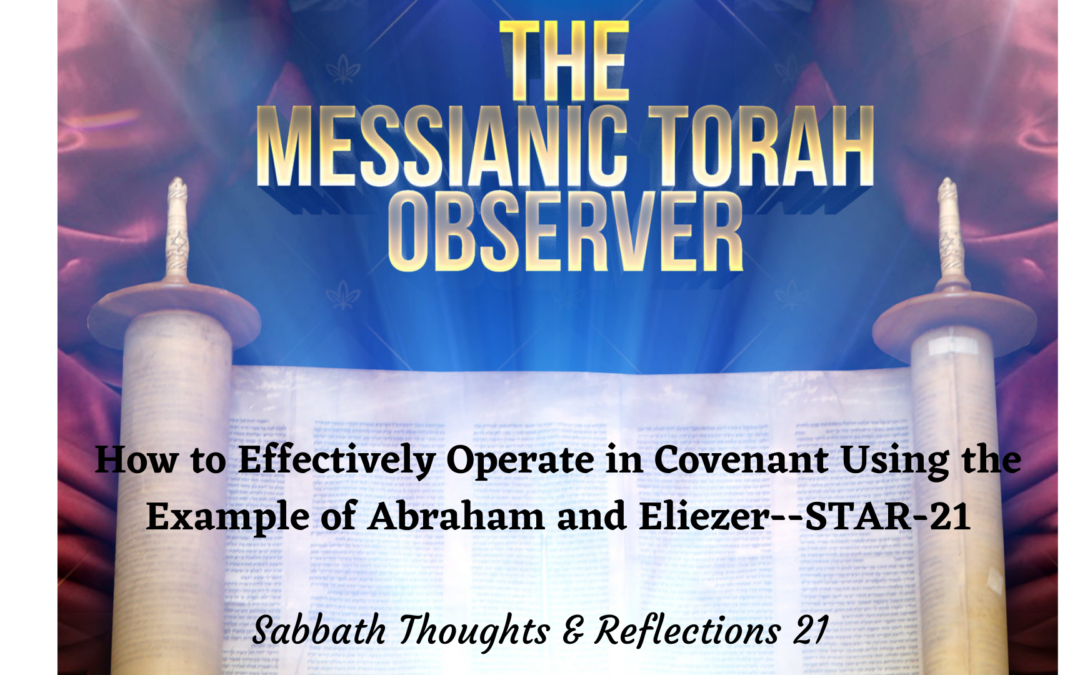
How to Effectively Operate in Covenant Using the Example of Abraham and Eliezer–STAR-21
We’ve talked quite a lot about be the importance of being in covenant and operating in covenant. But how does one operate in covenant? What is needed to operate in covenant. Well, this week’s Torah Reading may provide us the answers to these questions. Shabbat Shalom and Welcome.
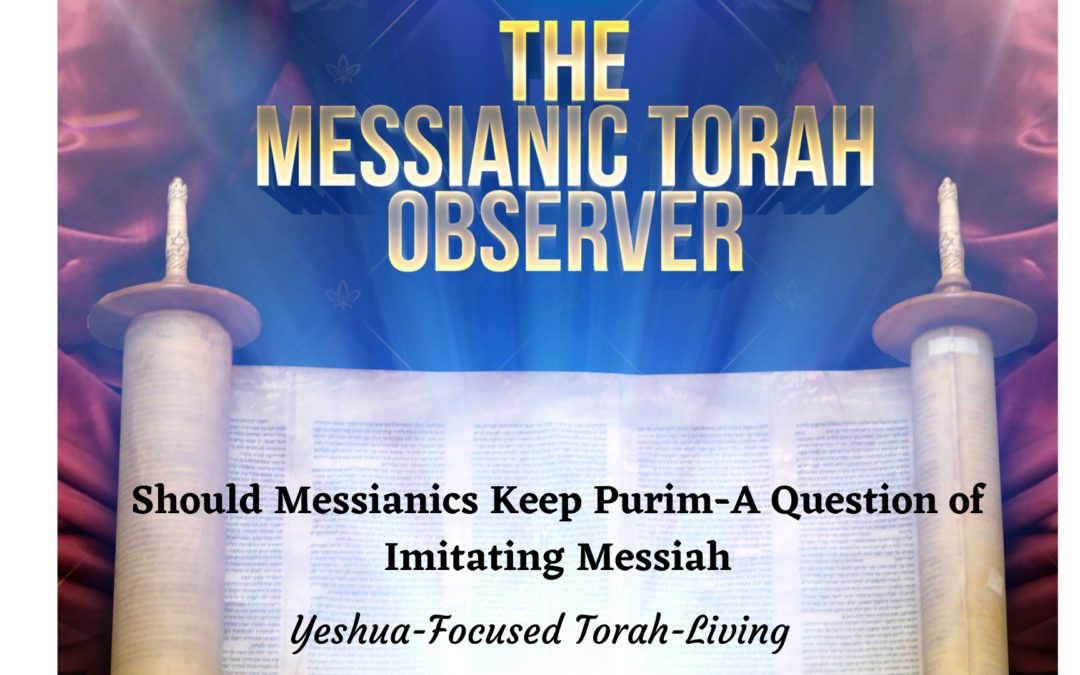
Should Messianics Keep Purim? A Question of Imitating Messiah
In this installment of TMTO, we ask and answer the question: Should Messianics keep-observe-honor-memorialize Purim? And in our brief exploration of this topic, we examine opposing views as it relates to Messianics and Purim.
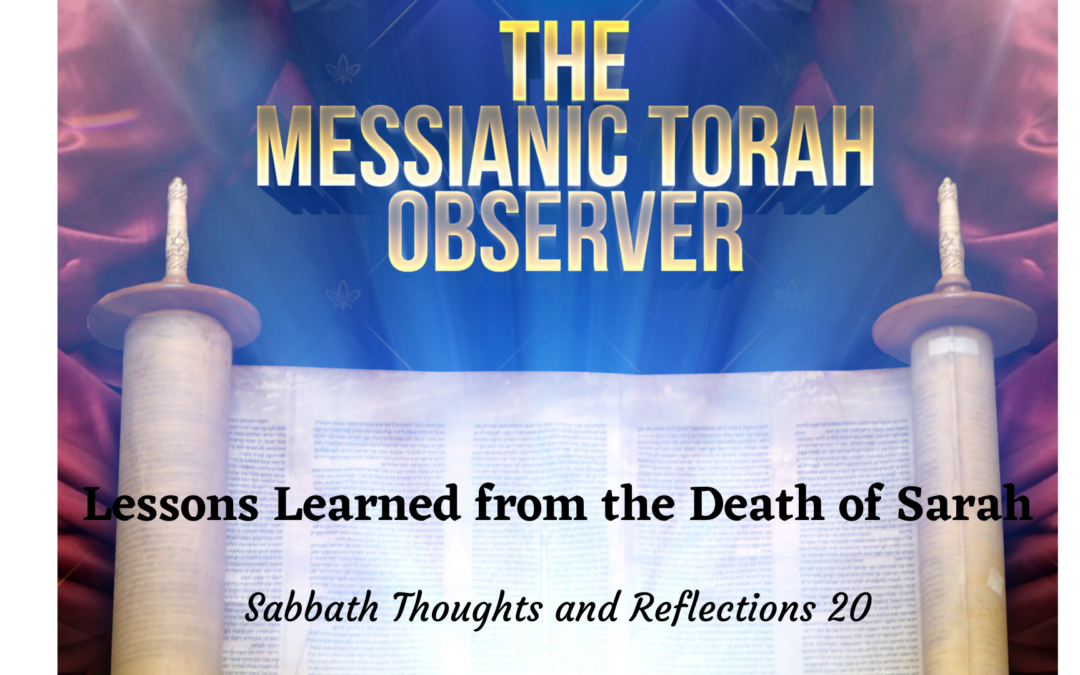
Lessons Learned from the Death of Sarah-STAR-20
In our Torah Reading for this Sabbath, we read of the death of the Matriarch of our Faith, Sarah. And in our discussion, we will explore the eternal truths associated with this sad, but important story. We will touch upon the themes of loving our wives; being a sojourner in this world; burial versus cremation when caring for a deceased loved one; as well as we’ll examine many of the historic and cultural elements that are attached to this beautiful Reading. Shalom and Welcome.
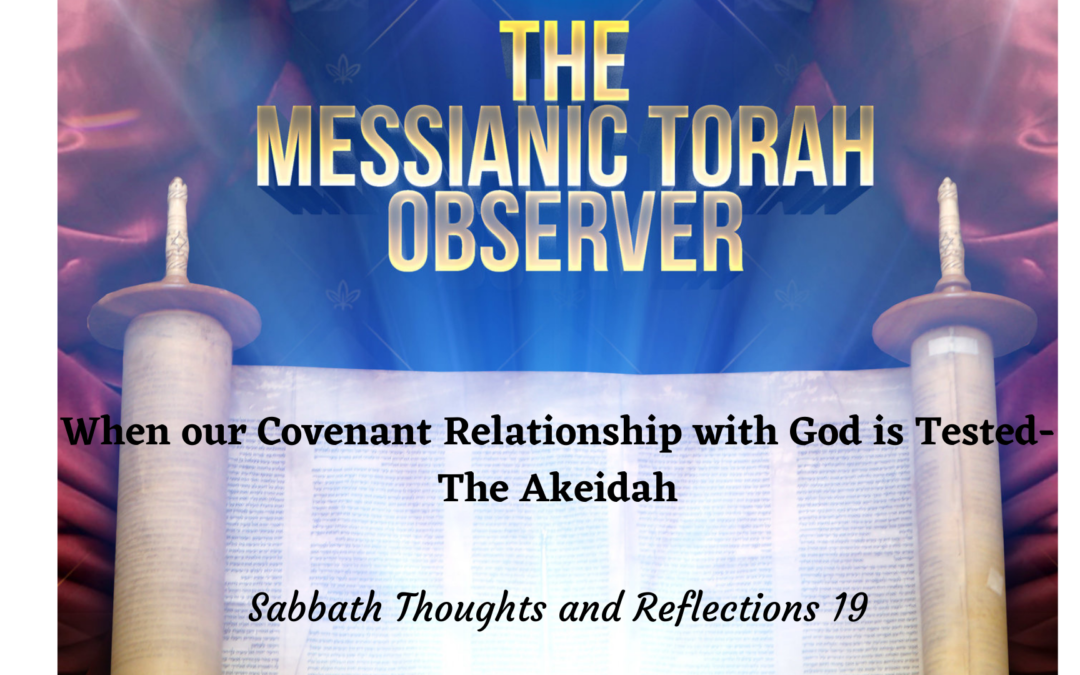
When our Covenant Relationship with God is Tested-Akeida-STAR-19
This week’s Torah Reading is that of the Akeidah or the binding of Isaac. It is a story about obedience, trusting faith and the ultimate goal of the Abrahamic Covenant. We will also explore the ramifications associated with God’s testing of those whom He loves. This is one of the most important Torah Reading Discussions of the Torah Reading Cycle. Come fellowship with us and let’s discuss the Eternal Mysteries of Yah’s Eternal Words of Life.
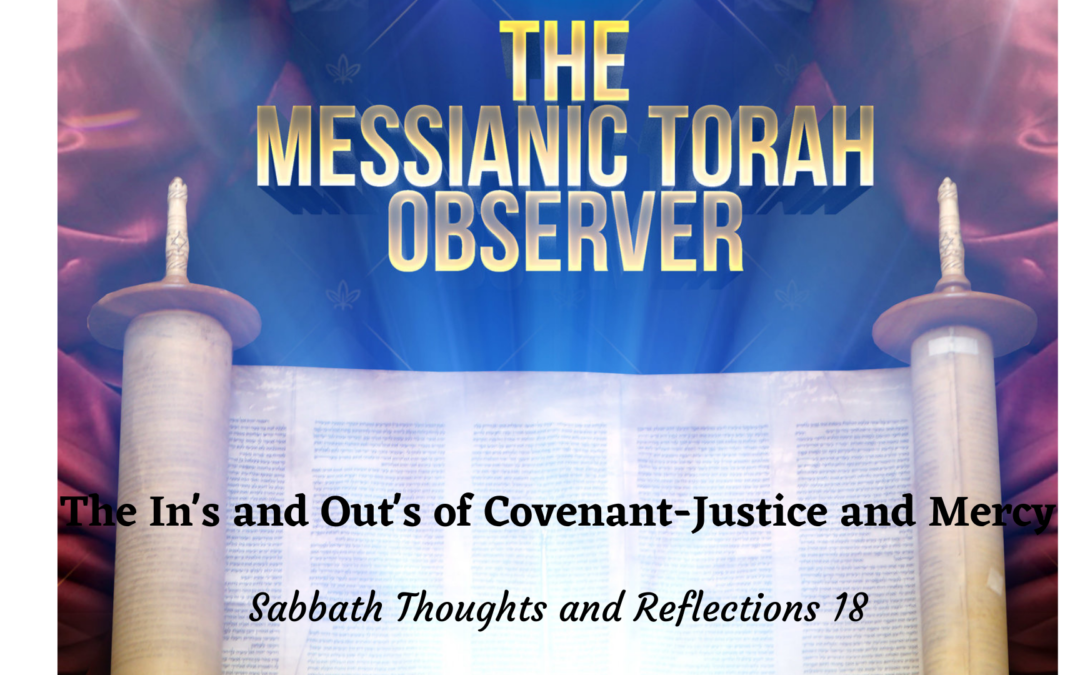
The In’s and Out’s of Covenant-Justice and Mercy-STAR-18
Many of us view covenant as an exclusive club or culture that belongs to God’s elect and those who find themselves outside of covenant are doomed to be outside of God’s blessings and provision. But the truth of the matter is that God operates in ways that are often foreign to us and that defy how we believe God should operate. In today’s Torah Reading discussion, we discuss the in’s and out’s of covenant and how God’s justice and mercy define how He will interact with those who are in covenant versus those who are outside covenant.
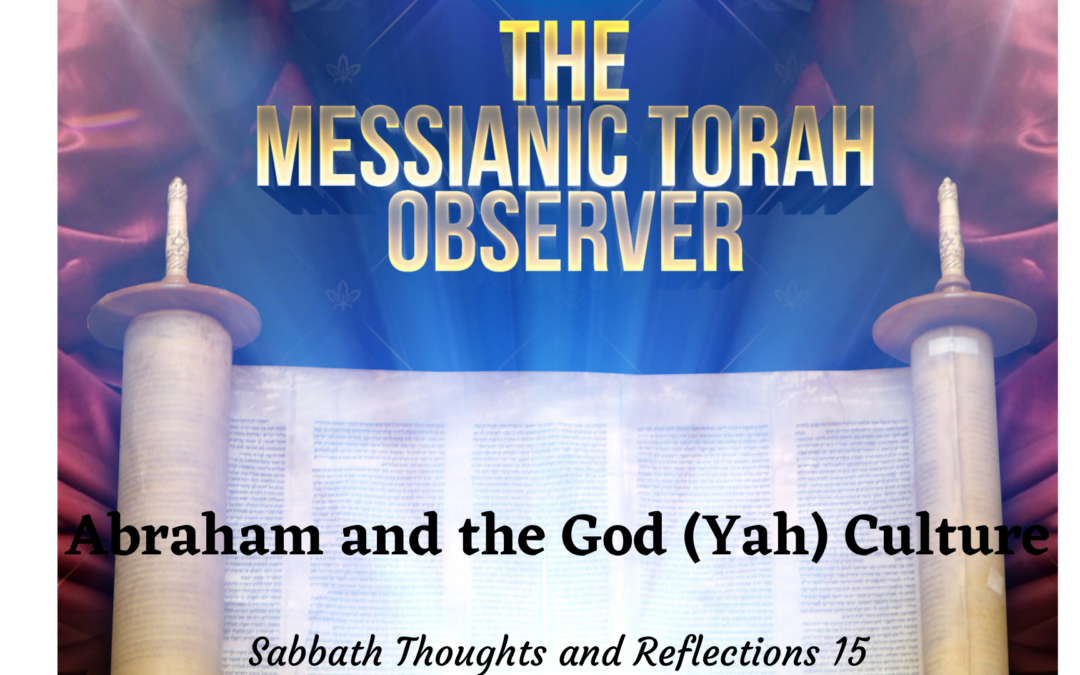
Abraham and the God (Yah) Culture–Sabbath Thoughts & Reflections 15
This week’s Torah Reading touches on a number of relevant themes that include righteousness, justice, reverence, hospitality, boldness, laughter, theophanies and covenant. But the one theme that stands out most is culture. In this installment of TMTO’s Sabbath Thoughts and Reflections, we explore each of these themes, in particular the theme of culture. What is the God Culture/the Hebrew Culture? What was Abraham’s role in that Culture? And what does that culture have to do with us today?
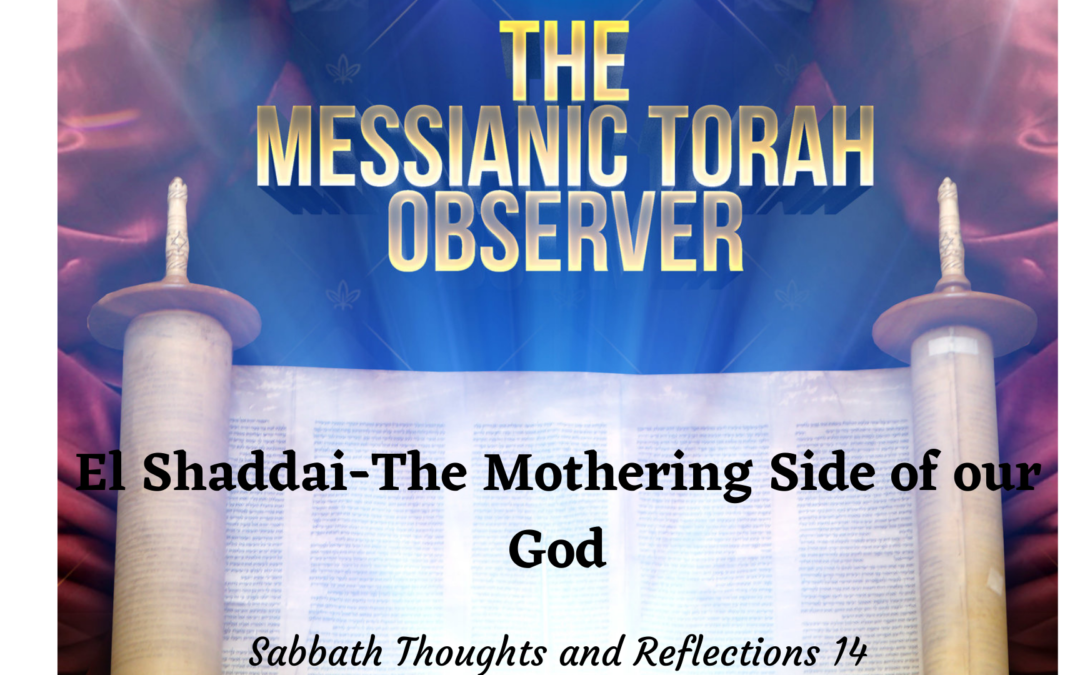
El Shaddai-The Mothering Side of our God-STAR 14
Seems we have been indoctrinated to view God exclusively from a “Fathering” perspective. But could one of God’s revealed names be indicative of a “Mothering” side to the Creator of the Universe? In this installment of TMTO we explore and discuss the power and meaning of El Shaddai.
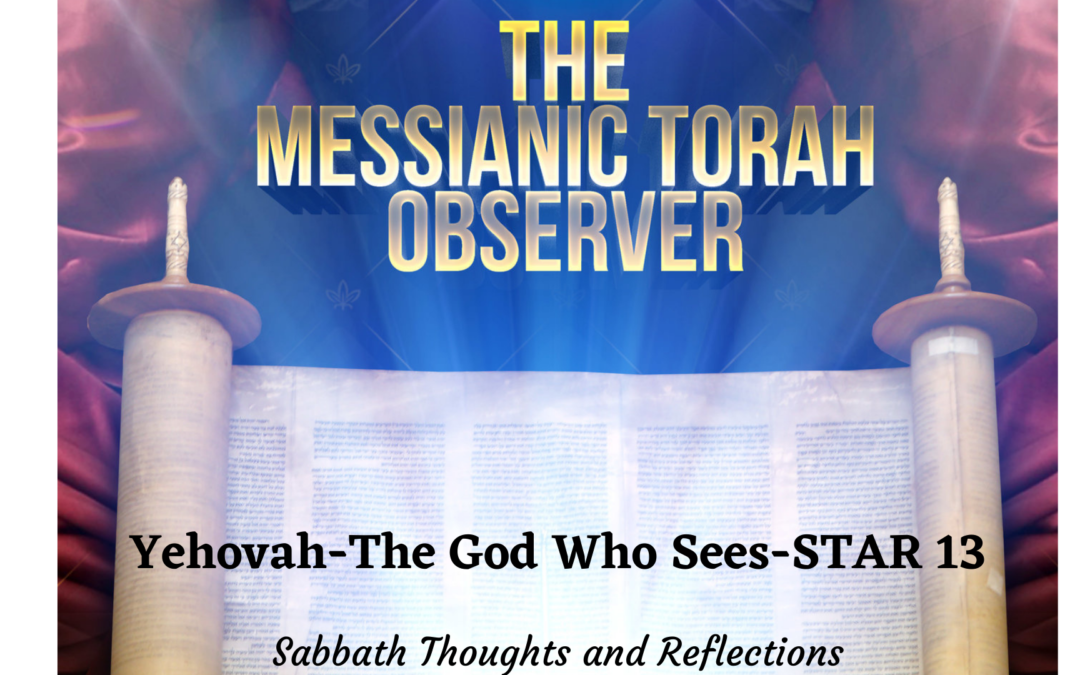
Yehovah-The God Who Sees-STAR 13
In our reading today, we’re led to think and reflect on the themes of:
● Trusting Faith
● Respect
● Patience & Perseverance
● Responsibility
● Honor
● The Spirit Realm Intersecting with the Physical Realm
● Promise
● Sonship
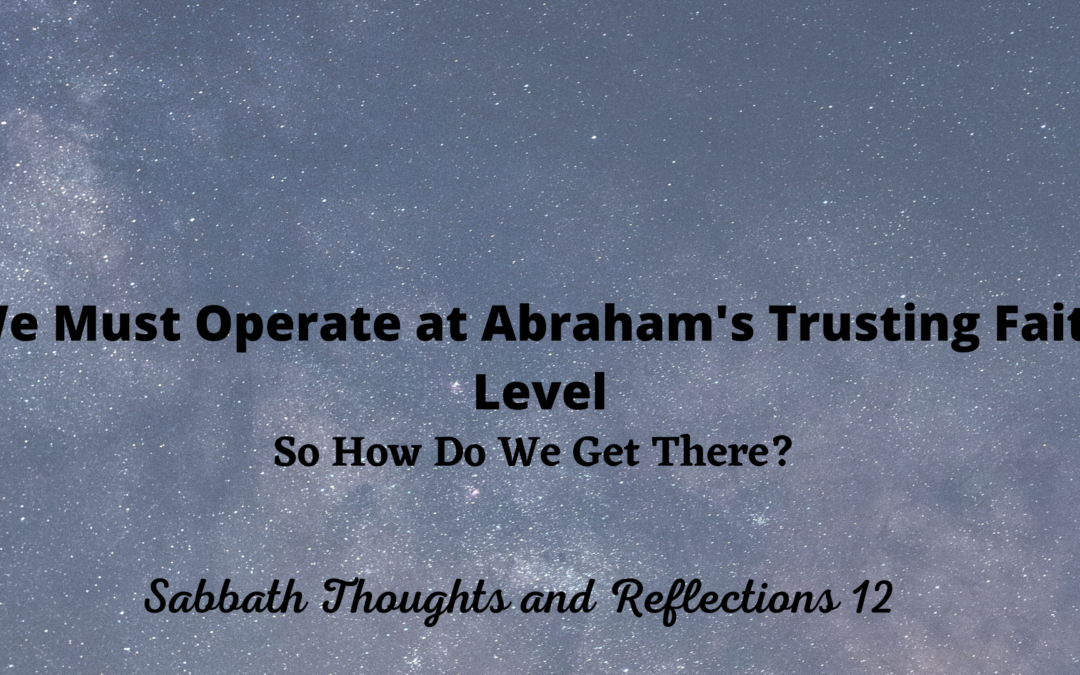
We Must Operate at Abraham’s Trusting Faith Level-So How Do We Get There? STAR 12
Today’s Torah Reading discussion will touch upon a great many themes that include operating in a trusting faith; the righteousness of Elohim; obedience to Yah’s instructions; divine protections and rewards; and the wisdom of challenging or questioning Yehovah.

0 Comments